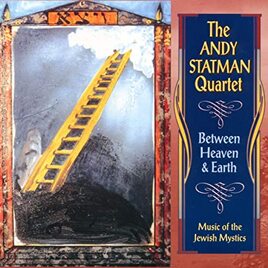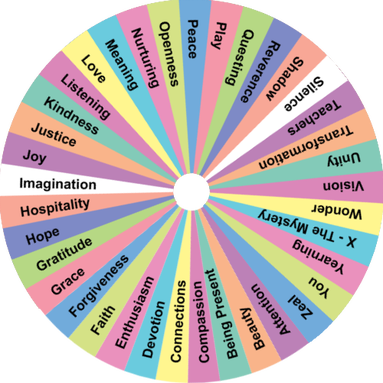- Home
- Process Worldview
- Community
- Art and Music
- Whitehead and Process Thinking
- Podcasts
- Spirituality
- Ecological Civilization
- Education
- Contact
- Social Justice
- Science
- Animals
- Sacred Poems
- Whitehead Videos
- Index of All Titles
- Practicing Process Thought
- Process Spirituality: A Spiritual Alphabet
- Recent Posts
Between Heaven and Earth
Andy Statman is a ba'al teshuvah, a Jew from a secular background who became religiously observant. He is also a noted American klezmer clarinetist and bluegrass/newgrass mandolinist. He composes and performs, in his words, "spontaneous American-roots music and personal, prayerful hasidic music, by way of avant-garde jazz." So much of his music, and that of his trio and quartet, will to you into a place of liminality where God's Breathing helps bring about creative transformation.
Nachman of Breslov (נחמן מברסלב), also known as Reb Nachman of Bratslav (April 4, 1772 – October 16, 1810), was the founder of the Breslvav Hasidic movement. Reb Nachman's religious philosophy revolved around closeness to God and speaking to God in normal conversation "as you would with a best friend."
This philosophy included the practice of listening to Nigunim. Nigunim, or songs without words, were an outward expression of the religious experience of the 18th-century Hasidic revivalist movement. The early Hasidim created a new and distinctly Jewish ritual act by singing these meditative and incantatory melodies in chorus with a community of fellow spiritual seekers.
Andy Statman Trio gives us the opportunity for just such an experience, whatever our spiritual path.
A Note on Listening as Soul-Widening
Jay McDaniel
April 11, 2020
From a process perspective, music is what feelings sound like. It communicates various energies through its melodies, rhythms, tones, harmonies, and soulfulness. Lyrics are unnecessary. The energies themselves are feelings. The philosopher Whitehead calls them subjective forms.
How the feelings are heard will depend partly on the situation of the listener and partly on the sounds themselves. Listening to music is always a dialogue. Different people need not interpret the sounds in the same way. In the house of listening there are many rooms.
As the sounds are heard and interested, consciously and unconsciously, they are mixed with the many moods and experiences, aims and aspirations of the listener. They are part of the many that become one in the immediacy of the moment.
The mixing itself can have a certain kind of miracle-like quality. It can open up spaces in the heart where the spirit of God can better work, helping bring about creative transformation. At least this can happen if the listener wants it to happen. The intentions of the listener are important. Music can function in its sacred way, but only if the listener wants it to function in such a way. The listener needs to think of the listening itself as a kind of prayer: an act of receiving the sounds of the world that God so loves.
There are many kinds of creative transformation that the music can help bring about. The wheel of spirituality offered below, developed by Spirituality and Practice, illustrates the variety. Different kinds of music speak to, and help elicit, different moods, different qualities of heart and mind.
The same music can elicit different feelings and qualities for different listeners. And the qualities evoked by the music can grow through time, as memories of past and fresh experiences are added to the life of the listener. Thus a piece of music can ‘mean’ one thing at one time, and still another at another time. This is good.
One of the letters in the spiritual alphabet of humanity is “H.” This stands for hospitality to strangers. The generous listener will listen to music that may not be natural or familiar, and sometimes even strident or dissonant. Still, he or she listens because she knows, like the Psalms, that the sounds express the feelings of another person, even if they are not her own feelings. And in understanding those feelings she can better love that person and also grow as a person, with a wider soul.
One of the function of music, then, is soul-widening. As the soul widens, it grows just a small bit closer in quality to the deep Wideness in whose heart all songs matter: the songs of people, of animals, of landscapes, of waterways, of stars and planets, of atoms and molecules. The whole universe is vibrating with feeling and music helps us hear the vibrations, along with the Wideness. The Wideness is God.
|
|
|


